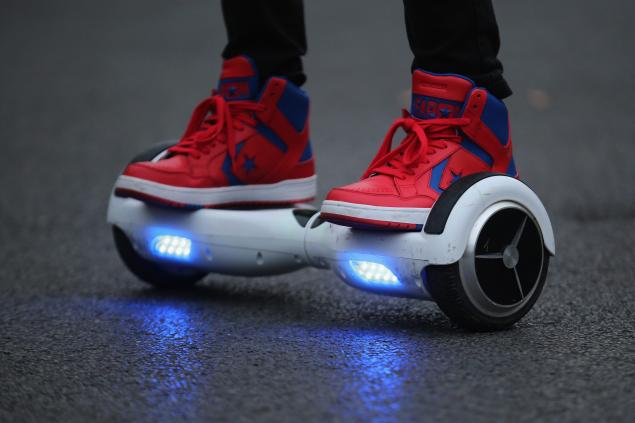In 2014, Segway filed a complaint with the United States International Trade Commission (ITC) that has resulted in the ban of “personal transporters” that violate some of its patents.

On March 16, 2016, the ITC issued a general exclusion ban on several types of self-balancing scooters that have been referred to as “hoverboards.” The general exclusion order is the commission’s most powerful method, having the potential to affect the entire market, including parties not directly involved in the investigation.
Alongside the general order is a limited exclusion issued against many Chinese companies sued by Segway. Only one company has responded and fought the case, leaving the others in violation by default.
The ban applies to any devices infringing upon US Patent No. 8,830,048, which could be a majority of hoverboards. The first claim refers to any transporter that has wheels, a drive, a “sensor for sensing the pitch of the user support,” “yaw input,” and a “control loop” for determining torque. The second claim essentially describes the same thing, but where the “user support” describes a handlebar.
Segway’s complaint names 13 companies, with 5 that had their cases terminated by either reaching settlements or consent orders. The companies that made a deal with Segway are Ninebot, Robstep, Shenzhen Inmotion, Tech in the City, and FreeGo USA. On the other side, the companies subject to the order are UPTECH, UP Technology, UP Robotics, FreeGo China, and EcoBoomer. Roboscooters was the only company that defended itself, but lost.
Once the ITC issues an exclusion order, the president has 60 days to decide whether to accept or block it (note: it’s rare that he blocks it). However, President Barack Obama overturned an exclusion order against older iPhones, which was the first time this was done since the 1980s.
Needless to say, enforcing an excursion order won’t be easy. Lawyers on the plaintiff side will have to work with U.S. customs to get it enforced.
And since the ITC has the authority to ban any imported goods that infringe on U.S. patents, these types of investigations tend to move quicker than federal courts.
Source: Ars Technica
Advertisement
Learn more about Electronic Products Magazine





